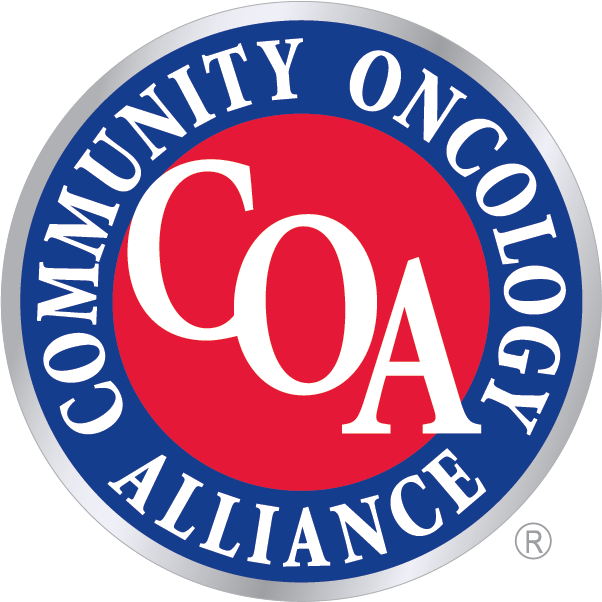COA 2017 Year in Review
Helping shape a future where community oncology thrives by supporting innovative payment and delivery system reform
COA is focused on making meaningful oncology innovation and payment reform a reality. This includes leading a support network for the Oncology Care Model (OCM) which continues to help nearly 80 percent of practices success through peer-to-peer networking, learning, and resource sharing.
At the same time, COA has also been working to develop a set of reforms that is believes are necessary if value-based care in oncology is to succeed. Known as ‘OCM 2.o’, this is a possible universal model of oncology payment reform building on the OCM which addresses several issues identified by current participants, as well as how value-based payments might be incorporated in the future.
80 %
The COA OCM Support Network continues to help nearly 80 percent of practices succeed through peer-to-peer networking, learning, and resource sharing.
This all ties in with the considerable work and resources COA has developed as part of its Oncology Medical Home (OMH), which is the foundation of the OCM.

Bringing the community together to share what is working – and what is not – through the Payer Exchange Summit on Oncology Payment Reform series
The Payer Exchange Summit series brings together community oncology practices, local and national health insurers, employers and employer coalitions, and stakeholders, to share ideas that will make oncology payment reform a reality.
This October we held the seventh Payer Exchange Summit outside of Washington, DC, where more than 200 providers, payers, employer, policymakers, and industry leaders heard from representatives of CMS, major national business groups, and their peers.

The goal of the Payer Exchange Summit series is to enable networking and idea sharing for how patients with cancer can receive high quality and cost-effective care. We want to better share what is – and is not – working with oncology payment reform efforts and what can be done to help those efforts succeed.

Hosting the largest and most successful annual Community Oncology Conference ever
In addition to the successes of the Payer Exchange Summit and the first ever COA State of the Union, 2017 also marked the largest Community Oncology Conference ever. More than 1,200 people came to Washington, DC for two packed days of learning and networking.
At what has been called “one of the best oncology conferences of the year,” attendees gained the latest knowledge on the clinical, business, and advocacy aspects of the community oncology.

The 2018 Community Oncology Conference will center on keeping patients and their needs paramount in transforming our nation’s cancer care system.
Attending the 2018 Community Oncology Conference will keep you current with all that it takes to deliver community cancer care, while remaining focused on expert, tailored care for every patient.

The only cancer organization pushing for meaningful reform of the 340B Drug Discount Program
As Congress and the Administration have put forth various proposals this year on 340B, COA is the only national cancer organization pushing for change of this runaway program. This year, we released a number of influential reports on the program, including a study by the Berkeley Research Group (RGB) into 340B hospital profiteering and the impact of discounts on drug prices. COA also released a compendium of 25 years of research and data on the program, as well as a collection of real stories of cancer patients in need being denied or delayed care at 340B hospitals.
During the most recent CMS proposal period, COA led a grassroots effort to get stakeholders from the cancer community, including member practices, patients, and beyond, to submit comments. The results? A historic change to the 340B program that is good for patients and taxpayers. With this and other reforms, we are hopeful that 2018 will bring an end to some large hospitals abusing the 340B program and putting patients over profits.
Americans reached by COA’s 340B communications campaigns this year

More than 1/4 of all the official comments submitted to CMS in support of the proposal, came directly from the 340B action resources COA created.

Stopping a new Medicare sequester
During the end-of-year negotiations over a tax bill in the U.S. House and Senate, it became clear that the plan could potentially double the current Medicare sequester cut to Part B drugs.
In response, COA coordinated a massive emergency effort to warn Congress and the Administration of the impact the ongoing and proposed Medicare sequester cuts have on cancer care. Physicians and practice administrators from across the country reworked schedules, moved patient visits, and more, to fly to DC to meet with policymakers during the busy holiday season as last minute tax bill negotiations took place.
Through COA’s advocacy directly with policymakers and staff, media outreach, member communications, and coordination with our professional allies, the new sequester was successfully averted. Community oncology’s message was heard loud and clear in Washington and our intense outreach efforts made to a difference.
Crisis Averted

COA’s emergency advocacy successfully stopped a devastating new 4% Medicare sequester cut from going into effect.

Fighting the growing presence and negative impact of Pharmacy Benefit Managers (PMS)
A significant amount of COA’s attention has been focused on the serious patient access to care and affordability issues caused by PBMs. This has included the release of four studies and two videos highlighting PBMs, and the negative impact they have on patient care. In the last six months alone, we have released three white papers featuring true stories from practices and patients that face delays in treatment, endless bureaucracies, and unethical PBM business practices.
COA continues to fight murky PBM “direct and indirect remuneration” fees (commonly known as “DIR Fees”). This year, we released an investigative legal white paper into the practice, conducted extensive media outreach to educate reporters, and continue advocacy on the Hill to advance legislation that will stop PBM abuse.
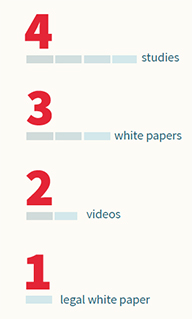

Expanding our patient advocacy reach, with the launch of new COA Patient Advocacy Network (CPAN) chapters across the country
This represents unprecedented growth of CPAN, and gives patients, survivors, family members, practice staff, and others in community oncology practices a new voice. Meanwhile, existing chapters have been ramping up their educational and advocacy opportunities on the local and national levels.
Earlier this year, 70 CPAN patient advocates took to Capitol Hill to meet with Members of Congress, discussing threats to their care and advocating for community oncology issues.
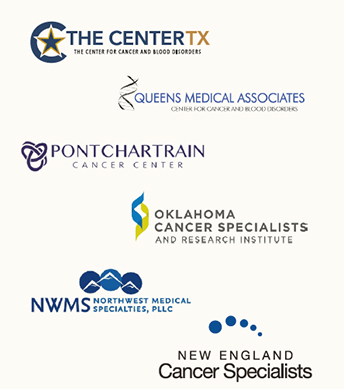

Leading efforts to get the cancer care system in Puerto Rico back up and running following the devastation of Hurricane Maria
COA is part of a group of organizations and oncologists helping cancer patients and practices in Puerto Rico that were devastated by Hurricane Maria.
Recognizing that cancer patients desperately needed to continue treatment despite the catastrophe, COA brought together a group of organizations and oncologists to help Puerto Rico. We partnered with CancerCare to start the Puerto Rico Hurricane Caner Patient Assistance Fund, a patient assistance fund dedicated solely to Puerto Rico’s cancer patients. To date, the fund has raised nearly $400,000 which is being used directly for things like patient transportation to/from visits and patient financial assistance.
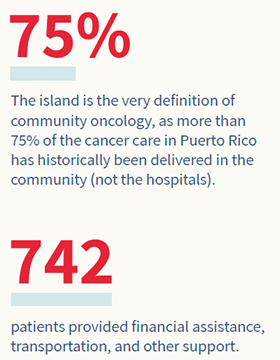
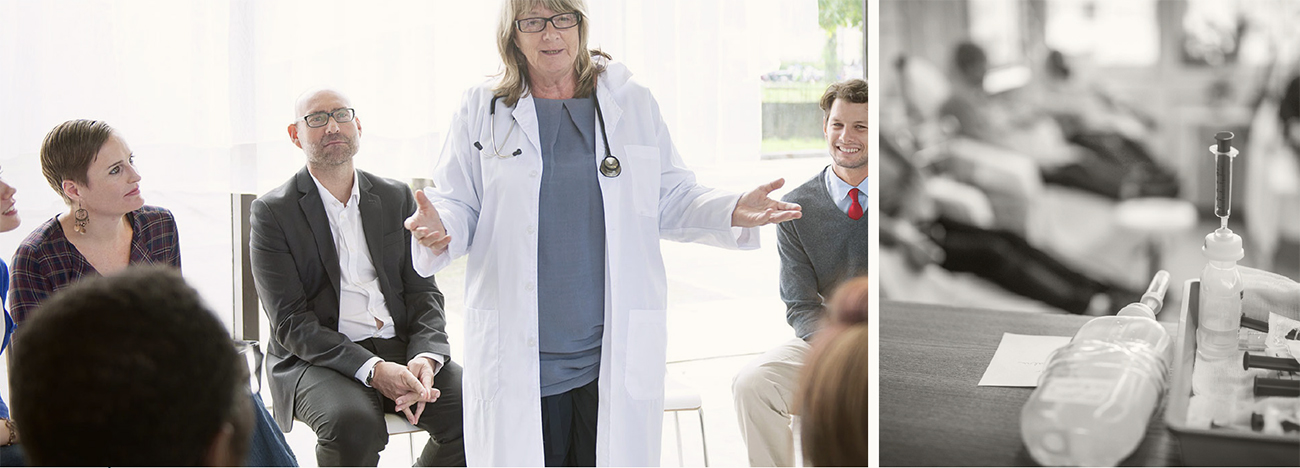
Educating future generations of community oncologists through the new COA Fellows Initiative
This year, COA also launched the Fellows Initiative, educating physicians enrolled in medical schools throughout the country. Through interactive educational events, Fellows get to learn about the benefits of practicing in the community setting and career options available to them post fellowship as community oncologists/hematologists.
Fellows events have been held across the country, and the initiative continues to grow every day, including job board for practices to share opportunities and grants to attend COA events throughout the year.
COA Fellows educational sessions cover:
- Oncologist/Hematologist Census/Outlook
- Educational Opportunities
- Legislative Update – Health Care Reform
- Factors in Play Affecting Cancer Care
- Oncology Payment Reform Models
- Career Choices
- Interview Process
- Employment Contracts
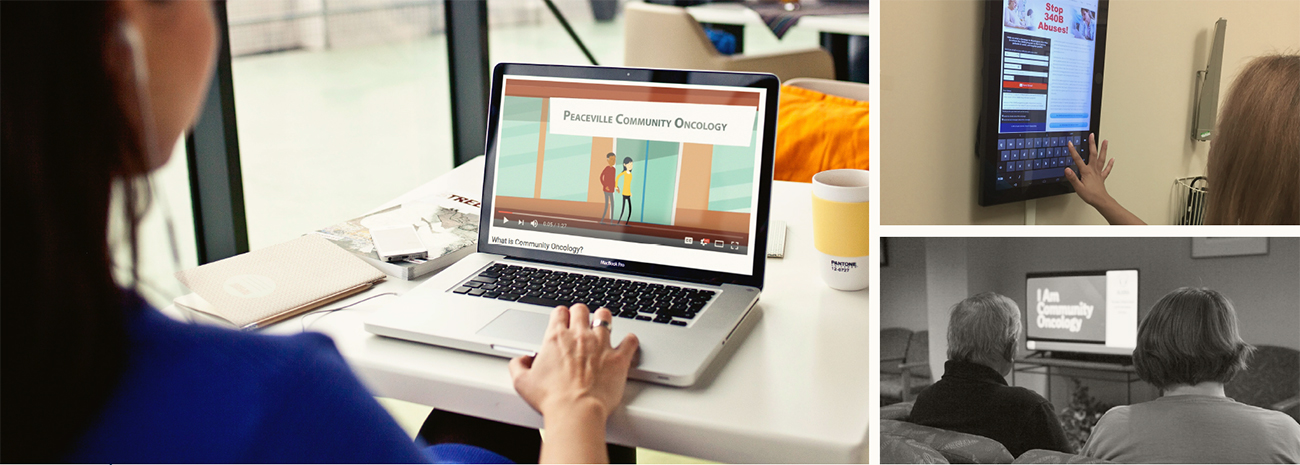
Launching the I Am Community Oncology campaign to educate the public about community oncology
Much of COA’s advocacy and education efforts this year have been made possible through the I Am Community Oncology campaign. This national effort to educate, engage, and activate our advocacy networks across the country was officially launched in April and has fueled the development of a vast array of patient and practice educational resources, local events, and more.
A cornerstone of the campaign is the COA TV network, a national waiting and exam room network that features our patient education content on screens. COA TV is now live in 240+ practice locations, representing 1,000+ providers, in 27+ states!
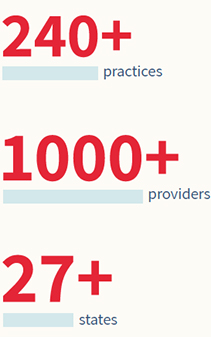

Providing community oncology practices, professionals, and pharmacies the resources they need to succeed
While taking on all these issues, COA has continued to support a wide variety of initiatives to help community oncology practices thrive. This includes the COA Administrators’ Network (CAN), for practice administrators and leaders; the Community Oncology Pharmacy Association (COPA), for practices with pharmacies; the Oncology Care Model (OCM) support network; and more.
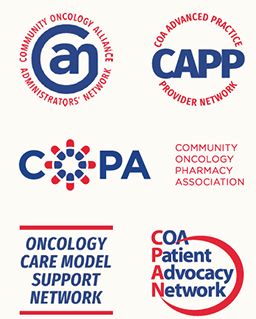
The challenges continue, but COA will always be there, innovating and advocating for a strong and robust community cancer care system. We do this for the sake of the patients who are battling this devastating disease and rely on community oncology for high quality, high value, and accessible cancer care in their own communities.
While it may seem that some of the issues we deal with never end, the success we have seen this year is proof that, though persistence and hard work, we can prevail. All of this important work would not be possible without the support of COA’s members in the community.
Thank you for allowing us to represent you and we look forward to a successful 2018 together!
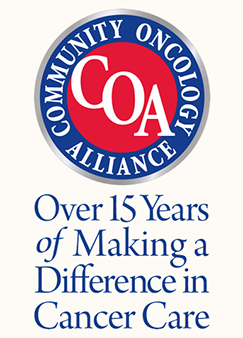
COA 2017 Year in Review
Helping shape a future where community oncology thrives by supporting innovative payment and delivery system reform
COA is focused on making meaningful oncology innovation and payment reform a reality. This includes leading a support network for the Oncology Care Model (OCM) which continues to help nearly 80 percent of practices success through peer-to-peer networking, learning, and resource sharing.
At the same time, COA has also been working to develop a set of reforms that is believes are necessary if value-based care in oncology is to succeed. Known as ‘OCM 2.o’, this is a possible universal model of oncology payment reform building on the OCM which addresses several issues identified by current participants, as well as how value-based payments might be incorporated in the future.
80 %
The COA OCM Support Network continues to help nearly 80 percent of practices succeed through peer-to-peer networking, learning, and resource sharing.
This all ties in with the considerable work and resources COA has developed as part of its Oncology Medical Home (OMH), which is the foundation of the OCM.

Bringing the community together to share what is working – and what is not – through the Payer Exchange Summit on Oncology Payment Reform series
The Payer Exchange Summit series brings together community oncology practices, local and national health insurers, employers and employer coalitions, and stakeholders, to share ideas that will make oncology payment reform a reality.
This October we held the seventh Payer Exchange Summit outside of Washington, DC, where more than 200 providers, payers, employer, policymakers, and industry leaders heard from representatives of CMS, major national business groups, and their peers.

The goal of the Payer Exchange Summit series is to enable networking and idea sharing for how patients with cancer can receive high quality and cost-effective care. We want to better share what is – and is not – working with oncology payment reform efforts and what can be done to help those efforts succeed.

Hosting the largest and most successful annual Community Oncology Conference ever
In addition to the successes of the Payer Exchange Summit and the first ever COA State of the Union, 2017 also marked the largest Community Oncology Conference ever. More than 1,200 people came to Washington, DC for two packed days of learning and networking.
At what has been called “one of the best oncology conferences of the year,” attendees gained the latest knowledge on the clinical, business, and advocacy aspects of the community oncology.

The 2018 Community Oncology Conference will center on keeping patients and their needs paramount in transforming our nation’s cancer care system.
Attending the 2018 Community Oncology Conference will keep you current with all that it takes to deliver community cancer care, while remaining focused on expert, tailored care for every patient.

The only cancer organization pushing for meaningful reform of the 340B Drug Discount Program
As Congress and the Administration have put forth various proposals this year on 340B, COA is the only national cancer organization pushing for change of this runaway program. This year, we released a number of influential reports on the program, including a study by the Berkeley Research Group (RGB) into 340B hospital profiteering and the impact of discounts on drug prices. COA also released a compendium of 25 years of research and data on the program, as well as a collection of real stories of cancer patients in need being denied or delayed care at 340B hospitals.
During the most recent CMS proposal period, COA led a grassroots effort to get stakeholders from the cancer community, including member practices, patients, and beyond, to submit comments. The results? A historic change to the 340B program that is good for patients and taxpayers. With this and other reforms, we are hopeful that 2018 will bring an end to some large hospitals abusing the 340B program and putting patients over profits.
Americans reached by COA’s 340B communications campaigns this year

More than 1/4 of all the official comments submitted to CMS in support of the proposal, came directly from the 340B action resources COA created.

Stopping a new Medicare sequester
During the end-of-year negotiations over a tax bill in the U.S. House and Senate, it became clear that the plan could potentially double the current Medicare sequester cut to Part B drugs.
In response, COA coordinated a massive emergency effort to warn Congress and the Administration of the impact the ongoing and proposed Medicare sequester cuts have on cancer care. Physicians and practice administrators from across the country reworked schedules, moved patient visits, and more, to fly to DC to meet with policymakers during the busy holiday season as last minute tax bill negotiations took place.
Through COA’s advocacy directly with policymakers and staff, media outreach, member communications, and coordination with our professional allies, the new sequester was successfully averted. Community oncology’s message was heard loud and clear in Washington and our intense outreach efforts made to a difference.
Crisis Averted

COA’s emergency advocacy successfully stopped a devastating new 4% Medicare sequester cut from going into effect.

Fighting the growing presence and negative impact of Pharmacy Benefit Managers (PMS)
A significant amount of COA’s attention has been focused on the serious patient access to care and affordability issues caused by PBMs. This has included the release of four studies and two videos highlighting PBMs, and the negative impact they have on patient care. In the last six months alone, we have released three white papers featuring true stories from practices and patients that face delays in treatment, endless bureaucracies, and unethical PBM business practices.
COA continues to fight murky PBM “direct and indirect remuneration” fees (commonly known as “DIR Fees”). This year, we released an investigative legal white paper into the practice, conducted extensive media outreach to educate reporters, and continue advocacy on the Hill to advance legislation that will stop PBM abuse.


Expanding our patient advocacy reach, with the launch of new COA Patient Advocacy Network (CPAN) chapters across the country
This represents unprecedented growth of CPAN, and gives patients, survivors, family members, practice staff, and others in community oncology practices a new voice. Meanwhile, existing chapters have been ramping up their educational and advocacy opportunities on the local and national levels.
Earlier this year, 70 CPAN patient advocates took to Capitol Hill to meet with Members of Congress, discussing threats to their care and advocating for community oncology issues.


Leading efforts to get the cancer care system in Puerto Rico back up and running following the devastation of Hurricane Maria
COA is part of a group of organizations and oncologists helping cancer patients and practices in Puerto Rico that were devastated by Hurricane Maria.
Recognizing that cancer patients desperately needed to continue treatment despite the catastrophe, COA brought together a group of organizations and oncologists to help Puerto Rico. We partnered with CancerCare to start the Puerto Rico Hurricane Caner Patient Assistance Fund, a patient assistance fund dedicated solely to Puerto Rico’s cancer patients. To date, the fund has raised nearly $400,000 which is being used directly for things like patient transportation to/from visits and patient financial assistance.


Educating future generations of community oncologists through the new COA Fellows Initiative
This year, COA also launched the Fellows Initiative, educating physicians enrolled in medical schools throughout the country. Through interactive educational events, Fellows get to learn about the benefits of practicing in the community setting and career options available to them post fellowship as community oncologists/hematologists.
Fellows events have been held across the country, and the initiative continues to grow every day, including job board for practices to share opportunities and grants to attend COA events throughout the year.
COA Fellows educational sessions cover:
- Oncologist/Hematologist Census/Outlook
- Educational Opportunities
- Legislative Update – Health Care Reform
- Factors in Play Affecting Cancer Care
- Oncology Payment Reform Models
- Career Choices
- Interview Process
- Employment Contracts

Launching the I Am Community Oncology campaign to educate the public about community oncology
Much of COA’s advocacy and education efforts this year have been made possible through the I Am Community Oncology campaign. This national effort to educate, engage, and activate our advocacy networks across the country was officially launched in April and has fueled the development of a vast array of patient and practice educational resources, local events, and more.
A cornerstone of the campaign is the COA TV network, a national waiting and exam room network that features our patient education content on screens. COA TV is now live in 240+ practice locations, representing 1,000+ providers, in 27+ states!


Providing community oncology practices, professionals, and pharmacies the resources they need to succeed
While taking on all these issues, COA has continued to support a wide variety of initiatives to help community oncology practices thrive. This includes the COA Administrators’ Network (CAN), for practice administrators and leaders; the Community Oncology Pharmacy Association (COPA), for practices with pharmacies; the Oncology Care Model (OCM) support network; and more.

The challenges continue, but COA will always be there, innovating and advocating for a strong and robust community cancer care system. We do this for the sake of the patients who are battling this devastating disease and rely on community oncology for high quality, high value, and accessible cancer care in their own communities.
While it may seem that some of the issues we deal with never end, the success we have seen this year is proof that, though persistence and hard work, we can prevail. All of this important work would not be possible without the support of COA’s members in the community.
Thank you for allowing us to represent you and we look forward to a successful 2018 together!

